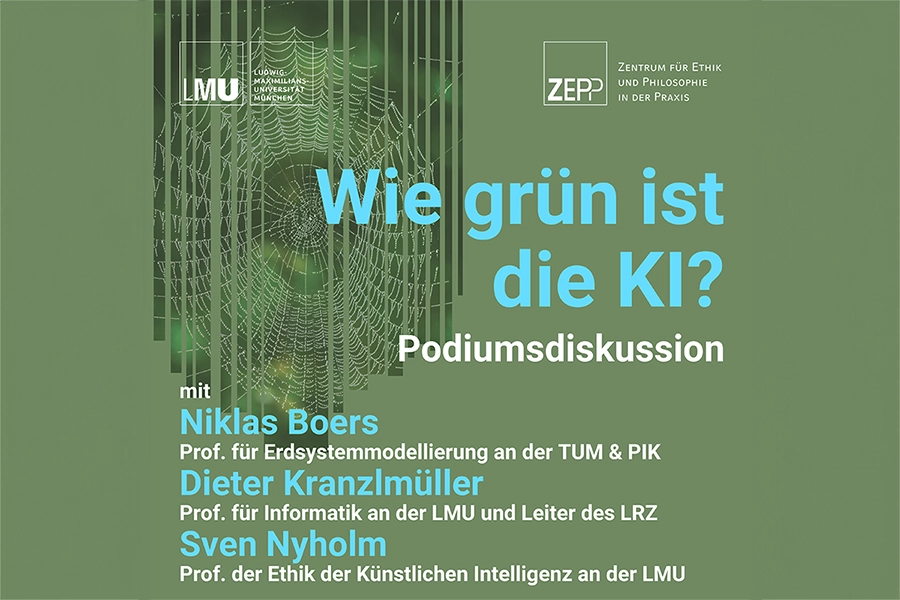11
Jun

Panel Discussion
Wie Grün Ist Die KI?
Niklas Boers, Chair of Earth System Modelling, TU Munich
Dieter Kranzlmüller, Professor of Computer Science, LMU Munich and Head of the Leibniz Supercomputing Centre
Sven Nyholm, Professor of Ethics of Artificial Intelligence, LMU Munich
11.06.2024
6:00 pm - 8:00 pm
LMU Munich, Main Building, M210
Artificial Intelligence (AI) plays an ambivalent role in the sustainability debate, as it both increases energy consumption and enables crucial data analysis. Experts from computer science, physics, and ethics will present their perspectives in talks and a panel discussion. The event will then open for audience questions to explore AI's role in sustainability further.
Organized by:
Center for Ethics and Philosophy in Practice LMU Munich